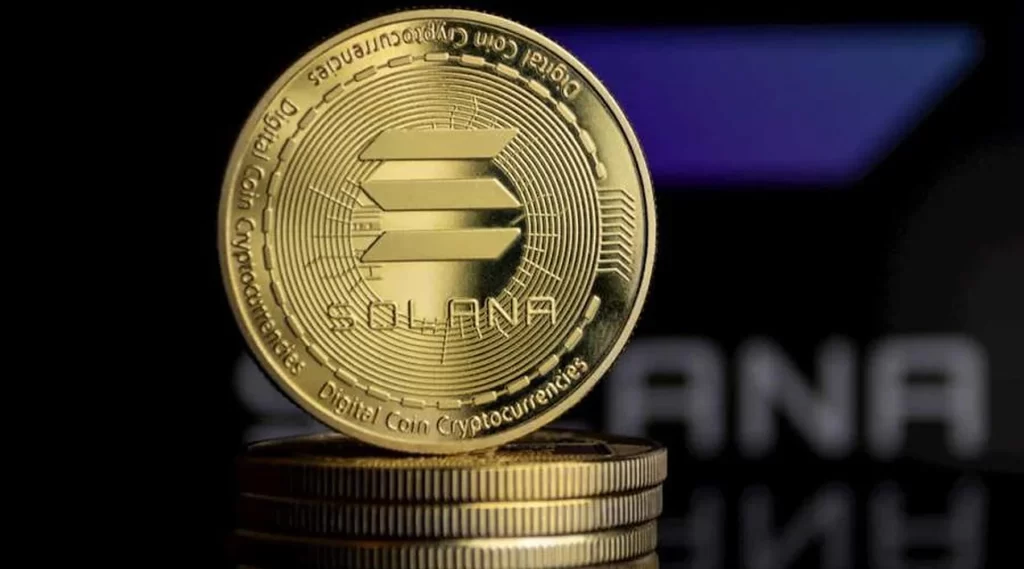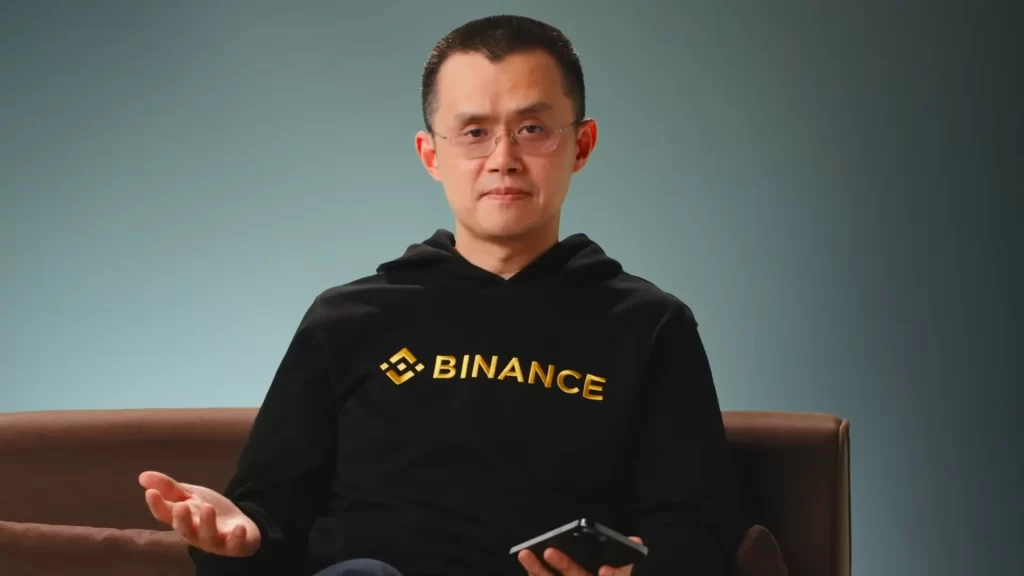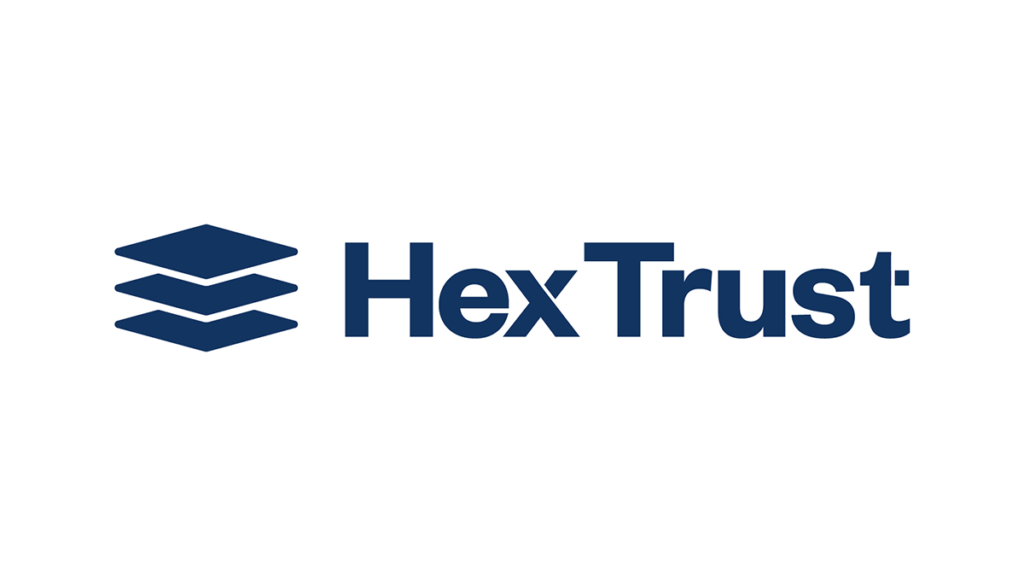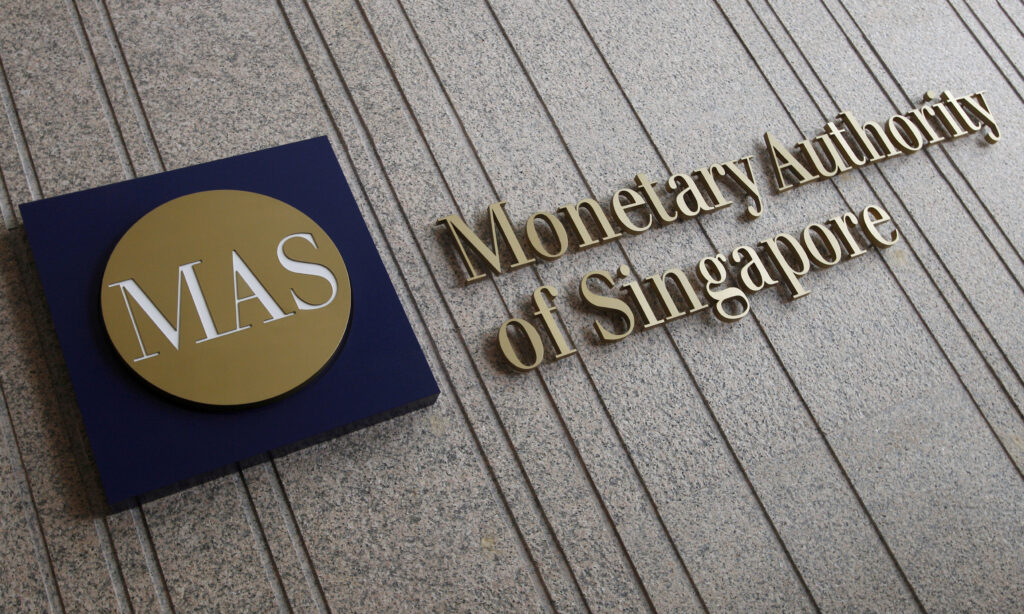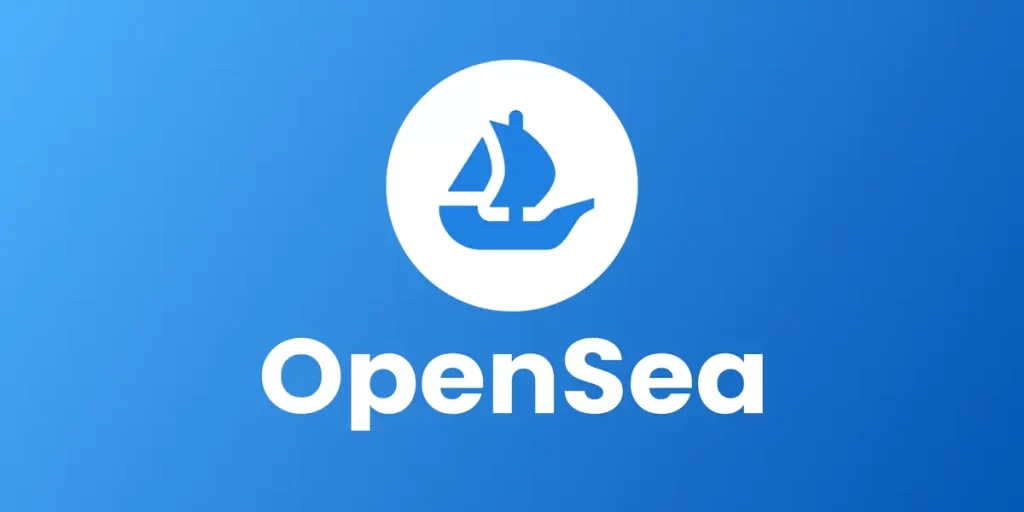Solana’s SOL token has surged to new yearly highs, registering a remarkable 17% gain just a day after Cathie Wood, CEO of ARK Invest, praised the network’s efficiency and cost-effectiveness during a CNBC interview on November 15th.
Wood hailed Solana as a major player in the broader blockchain ecosystem, commending its performance in recent market conditions.
Comparing Solana to Ethereum, Wood emphasized the former’s superior speed and cost-effectiveness, stating, “Ether was faster and cheaper than Bitcoin in the day – that’s how we got Ether.
Solana is even faster and more cost-effective than Ether.” She underscored the significance of Ethereum and Solana as essential infrastructure layers within the blockchain ecosystem, capable of supporting a wider range of real-world applications compared to Bitcoin.
While the overall cryptocurrency market is experiencing an uptrend, Solana’s recent gains have outstripped those of other major cryptocurrencies, surging by an impressive 197% over the last month.
READ MORE: Poloniex Prepares to Resume Operations Following $100 Million Hack
In contrast, Bitcoin and Ether have seen more modest gains of 32% and 28%, respectively, during the same period.
As of now, Solana is trading at just over $66, according to TradingView data.
Wood also addressed the current market anticipation surrounding pending spot Bitcoin exchange-traded fund (ETF) products.
She urged investors to stay focused on the fundamental importance of Bitcoin as a catalyst for “the money revolution” and cautioned against becoming too fixated on short-term price fluctuations.
Acknowledging the possibility of a “sell on the news” scenario, where investors’ anticipation of ETF approval exceeds the market’s demand for the actual event, Wood warned of a potential rapid selloff in the days following such an approval.
In essence, Wood emphasized the importance of maintaining a long-term perspective on the transformative potential of cryptocurrencies and blockchain technology, regardless of short-term market dynamics.
Paxos, a prominent crypto infrastructure company, has achieved preliminary approval from Singapore’s regulatory authority for the establishment of a new entity dedicated to launching a stablecoin backed by the U.S. dollar.
In an announcement made on November 15th, Paxos revealed that it had received an initial endorsement from the Monetary Authority of Singapore (MAS) for its newly formed entity, Paxos Digital Singapore Pte. Ltd.
This new entity is authorized to provide digital payment token services and has intentions to introduce a stablecoin denominated in U.S. dollars, which will comply with MAS’ forthcoming stablecoin regulations.
Upon obtaining full regulatory approval, Paxos intends to collaborate with enterprise clients to facilitate the issuance of the stablecoin within Singapore.
Walter Hessert, Paxos’ head of strategy, emphasized the increasing global demand for the U.S. dollar while acknowledging the challenges faced by consumers outside the United States in accessing dollars securely, reliably, and with regulatory safeguards.
He noted that the in-principle approval from MAS would enable Paxos to extend its regulated platform to a broader international user base.
READ MORE: Global Tech Giants Unveil Ambitious Plan After Poloniex Hack
The Monetary Authority of Singapore previously outlined its regulatory framework for stablecoins on August 15th.
This framework is designed to oversee stablecoins linked to the Singapore dollar or major G10 currencies like the euro, British pound, and U.S. dollar, provided their circulation exceeds 5 million Singapore dollars ($3.7 million).
On August 7th, PayPal launched its own USD-backed stablecoin, PYUSD, which was issued by Paxos.
It’s worth mentioning that Paxos had previously minted Binance’s BUSD stablecoin, but it was compelled by the New York Department of Financial Services to cease issuing the token due to the agency’s classification of it as an unregistered security.
Paxos clarified that all of its stablecoins are fully backed by U.S. dollars and cash equivalents, underscoring their commitment to compliance.
They further highlighted their practice of issuing monthly attestations and reserve reports to ensure transparency and regulatory adherence.
This commitment to regulatory compliance aligns with Paxos’ mission to provide a reliable and secure platform for the issuance of stablecoins, catering to the growing global demand for the U.S. dollar.
Binance, the renowned cryptocurrency exchange, is set to make its presence felt in Thailand through a joint venture with Gulf Energy Development, a local energy giant.
According to a November 15 filing with the Stock Exchange of Thailand by Gulf Energy, the new venture, named Gulf Binance, will initially operate on an invitation-only basis, with plans for a public rollout in early 2024.
This initiative received the green light from the Thai Securities and Exchange Commission (SEC) on November 10, paving the way for Binance’s expansion into the Thai market.
A spokesperson from Binance confirmed that the platform’s launch has commenced with invitation-only access, with more details to follow as they become available.
Gulf Binance achieved a significant milestone on May 26 when it secured digital asset operator licenses from Thailand’s Ministry of Finance, enabling it to operate a regulated cryptocurrency exchange under the supervision of the country’s SEC.
Initially, Binance had aimed to launch its Thai branch by the fourth quarter of 2023.
Richard Teng, Binance’s regional head of Asia, Europe, the Middle East, and North Africa, emphasized the strategic importance of leveraging Gulf Energy’s local presence and network to introduce blockchain technology to Thai users.
READ MORE: Global Tech Giants Unveil Ambitious Plan After Poloniex Hack
Gulf Energy Development, founded and led by Thai billionaire Sarath Ratanavadi, is a major player in Thailand’s natural gas distribution sector.
The company is known for its diverse investments in various business sectors, including renewable power generation, infrastructure development projects, and digital infrastructure businesses.
Gulf Energy had previously invested in Binance’s United States-based subsidiary, Binance.US, through its participation in the “Series Seed Preferred Stock” issued by BAM Trading Services, the operator of Binance.US.
In recent developments, Binance collaborated with the Royal Thai Police to seize $277 million from scammers, which resulted in over 3,200 victims seeking compensation.
Tigran Gambaryan, Binance’s head of financial crime compliance, emphasized the company’s commitment to partnering with authorities worldwide to restore trust in the digital asset ecosystem.
The joint venture between Binance and Gulf Energy Development signifies Binance’s expanding footprint in the cryptocurrency market and its dedication to collaborating with local partners to promote blockchain technology adoption.
With the Thai SEC’s approval, Gulf Binance is poised to make a significant impact on the cryptocurrency landscape in Thailand.
On November 14th, Bitcoin faced a critical test as it dipped to the $35,000 support level, experiencing a significant drop in price.
In just one hour, the cryptocurrency plummeted by over $1,000, creating a sense of sell-side pressure in the market.
Fortunately, Bitcoin managed to find support at the $35,000 mark, acting as a springboard for a recovery to approximately $35,600 at the time of this report.
This sudden volatility came shortly after what initially seemed like a positive development for Bitcoin and the crypto market, with United States inflation data showing a slowdown beyond expectations.
However, it became evident that beyond smaller retail investors, there was limited enthusiasm for purchasing Bitcoin at its previous levels, which had recently reached 18-month highs.
Analysts pointed out that Bitcoin whales began to cash in on their profits on November 3rd as the BTC price surged from $35,000 to nearly $38,000. Over 15 wallets holding more than 1,000 BTC each either sold or redistributed their holdings.
An accompanying chart from on-chain analytics firm Glassnode revealed that the number of whale wallets had reached its lowest point in about a month.
Following the release of the inflation data, monitoring resource Material Indicators highlighted the need to anticipate periods of downside movements within the broader Bitcoin uptrend.
They cautioned against assuming that the market would only move upwards, emphasizing that market dynamics are more complex and require patience and conviction from investors.
A subsequent update revealed that bid support had shifted closer to the spot price, moving from $33,000 to $34,500, while whales continued to offload their holdings.
One notable development was the surge in long liquidations, with data from CoinGlass indicating the highest daily volume of long Bitcoin liquidations in several months, totaling $120 million on November 14th.
Interestingly, this amount was nearly equal to the short Bitcoin liquidations that occurred when the price spiked to $38,000 the previous week.
Furthermore, across the cryptocurrency market, long positions in various cryptocurrencies were liquidated, amounting to nearly $300 million.
In conclusion, Bitcoin’s recent price action showcased the cryptocurrency’s ongoing volatility, with fluctuations driven by factors such as profit-taking by whales and market sentiment.
Traders and investors need to exercise caution and be prepared for both upward and downward movements in the ever-evolving cryptocurrency market.
The United States House Financial Services Subcommittee on Digital Assets, Financial Technology, and Inclusion gained insights into blockchain technology during a hearing titled “Crypto Crime in Context: Breaking Down the Illicit Activity in Digital Assets” on November 15.
The bipartisan nature of the hearing was emphasized by Chair French Hill at the outset.
Chair Hill initiated the meeting by referencing an article published by The Wall Street Journal on October 10, which highlighted the use of cryptocurrencies by Hamas for fundraising.
It’s worth noting that the article was corrected on October 27 to provide a more accurate representation of data from blockchain analytics firm Elliptic, as Hill pointed out.
He underscored that just as phones and the internet cannot be blamed for terror financing, cryptocurrencies shouldn’t be either.
Subcommittee ranking member Stephen Lynch expressed hope that preconceived notions about cryptocurrencies could be set aside.
The panel of witnesses included representatives from Consensys and Chainalysis, as well as forensic experts and a senior counsel from law firm Hogan Lovells.
They emphasized the importance of international and public-private collaboration to combat the misuse of digital assets, the necessity of well-crafted legislation, and the complexities of blockchain investigation.
Representative Brad Sherman posed a question to Dynamic Securities Analytics president Alison Jimenez, asking for an example of a legitimate use of a crypto mixer, to which she was unable to provide a satisfactory response.
READ MORE: Global Tech Giants Unveil Ambitious Plan After Poloniex Hack
Additionally, a group of lawmakers, including Hill, Representative Tom Emmer, Financial Services Committee Chair Patrick McHenry, and Representative Ritchie Torres, along with 53 more House members, sent a letter to U.S. President Joe Biden and Treasury Secretary Janet Yellen on November 15.
This letter sought information on the fundraising activities of Hamas and Palestinian Islamic Jihad and their involvement with cryptocurrency.
The letter emphasized the need to understand the scale of these organizations’ digital asset fundraising campaigns in relation to their traditional funding methods.
The same Wall Street Journal article was cited in this letter. On November 12, the WSJ published a second article by the same authors on the use of cryptocurrencies to funnel money to Hamas.
On the same day, the Blockchain Association released an open letter addressed to Hill and other members of the Financial Services Committee.
This letter, signed by 40 former members of the U.S. military, intelligence officers, and national security professionals with ties to digital asset companies or venture capital, expressed concerns about the accuracy of the previously mentioned WSJ article.
They argued that this article, which they deemed “grossly overstated” and “debunked,” is being used to advocate for legislation that may not align with U.S. national security interests.
The letter emphasized that promoting the growth of a regulated and compliant digital asset industry in the United States is the most effective approach to combating illicit activities involving cryptocurrencies.
Hong Kong-based institutional cryptocurrency asset custodian, Hex Trust, has received approval to offer virtual asset custodial services to institutional clients and investors in Dubai.
The company, which established its Dubai office in June 2022, obtained a full virtual asset service provider (VASP) license from Dubai’s Virtual Asset Regulatory Authority (VARA) on November 15.
Initially, Hex Trust had received a minimal viable product (MVP) operations license in February 2023, and this recent approval allows the firm to fully operate in the jurisdiction.
Hex Trust’s MENA regional director, Filippo Buzzi, highlighted that this approval places the company among a select group of cryptocurrency exchanges and service providers allowed to operate in Dubai.
Buzzi expressed Hex Trust’s commitment to expanding into the Middle East, citing the region’s progressive regulations, supportive governments, and thriving crypto ecosystem as factors contributing to its growth potential.
Alessio Quaglini, Hex Trust’s co-founder and CEO, emphasized that Dubai offers an ideal environment for businesses in the cryptocurrency sector to thrive, thanks to its progressive regulatory approach.
In addition to Dubai, Hex Trust has also received regulatory approval in France to provide its services to companies in the country, marking another milestone in its global expansion.
The company currently has offices in Hong Kong, Singapore, Vietnam, Dubai, Italy, and France.
READ MORE: Global Leaders Gather at APEC Summit in San Francisco to Discuss Economy and Digital Assets
Furthermore, Hex Trust recently gained recognition as one of the four major cryptocurrency custodians integrated into MetaMask Institutional’s wallet and browser extension, enabling it to offer custodial services to institutional clients.
This announcement coincided with Crypto.com’s Dubai entity receiving its VASP license, which is still pending operational approval from the city’s regulator.
Hex Trust joins a list of prominent cryptocurrency exchanges and firms that have obtained MVP or VASP licenses in Dubai, including Binance, Bybit, Laser Digital Middle East, BitOasis (currently suspended), OKX, Crypto.com, FTX (license revoked), and Huobi.
Komainu, a joint venture involving Nomura, and crypto companies CoinShares and Ledger, also secured a full VASP license in August 2023, offering custodial and staking services to institutional-grade clients.
The United Arab Emirates’ continued attraction to cryptocurrency ecosystem participants is driven by its role in providing federal grants and fostering crypto-friendly regulations.
To obtain a VARA license in Dubai, crypto exchanges must go through a three-step process, which includes qualifying for provisional approval, obtaining an MVP license, and finally securing a full market product license.
During her opening address at the Singapore FinTech Festival, Kristalina Georgieva, the Managing Director of the International Monetary Fund (IMF), encouraged governments to continue their preparations for the eventual adoption of central bank digital currencies (CBDCs) and related payment platforms.
Georgieva expressed her optimism about the global implementation of CBDCs but cautioned that we have not yet fully realized their potential.
She highlighted the ongoing uncertainty surrounding the adoption of CBDCs, stating that while approximately 60 percent of countries are currently exploring them in some form, widespread adoption is still a distant goal.
The IMF Managing Director underscored the transformative potential of CBDCs, emphasizing their ability to potentially replace physical cash, provide financial resilience in advanced economies, and enhance financial inclusion in underserved communities.
Georgieva also highlighted the complementary nature of CBDCs with existing private currencies, portraying them as a secure and cost-effective alternative.
Technological infrastructure was another key aspect of Georgieva’s speech, as she stressed the importance of robust technological frameworks for CBDC projects.
She also addressed the crucial matter of personal data protection and even proposed that artificial intelligence (AI) could play a role in enhancing the functionality of national digital currencies.
Cross-border payments were a focal point of her remarks, as she called for CBDCs to be designed with the capability to facilitate cross-border transactions, which are currently costly and limited in availability.
Georgieva introduced the IMF’s CBDC virtual handbook during her speech and acknowledged the significant role of the Bank for International Settlements (BIS) in supporting digital currency initiatives within the public sector.
The IMF has been actively engaged in the analysis of crypto regulations and risk assessments. On September 29th, the organization proposed a crypto-risk assessment matrix designed to help countries identify potential risks and triggers in the crypto sector.
This initiative, known as the IMF’s Synthesis Paper, was jointly developed with the Financial Stability Board and received unanimous approval from G20 finance ministers and central bank governors in October.
In summary, Kristalina Georgieva’s address at the Singapore FinTech Festival underscored the IMF’s commitment to exploring the potential of CBDCs and digital currencies in the evolving financial landscape, emphasizing their role in promoting financial inclusion, enhancing cross-border transactions, and providing resilient alternatives to traditional cash.
Dairy Queen is teaming up with the local nonfungible token project, Weirdo Ghost Gang (WGG), to launch a temporary NFT store in Chengdu, China.
The “Ice and Snow Season” themed pop-up store is set to operate from November 15th to December 31st, showcasing a range of co-branded merchandise, including a Dairy Queen-WGG themed ice cream.
Furthermore, WGG NFT holders will enjoy exclusive benefits as part of this collaboration, catering to their substantial user base in the Asia-Pacific region.
According to a press release reported by Cointelegraph, this partnership aims to go beyond merely highlighting Dairy Queen’s ongoing efforts in new media digital marketing.
It also seeks to provide consumers with a deeper understanding of the NFT art intellectual property (IP) associated with WGG, ultimately enhancing their experiences and connections.
WGG’s collection comprises 5,555 “Lil Ghosts” NFTs, initially crafted by Hong Kong-based Web3 holding company ManesLab in 2021.
Since its inception, the collection has achieved a trading volume exceeding 21,510 Ether (equivalent to $43.5 million) with a current floor price of 0.485 ETH ($995.2).
WGG has been actively engaging with its community through various initiatives.
READ MORE: Blockchain Association Challenges IRS Over Cryptocurrency Tax Regulations
In September, they launched the “City Party Map – Shanghai Station” event in collaboration with local food retailer Jiujiu Duck Neck. This event offered discounts to NFT holders at over 500 retail stores.
Additionally, last month, the project introduced the “Ghost Season” event at The Box, a luxury shopping destination in Beijing. During this event, WGG’s NFT art was showcased on 3D screens, providing a unique experience for shoppers.
In a cryptocurrency market facing a challenging period, many NFT projects have sought partnerships with Web2 or traditional brick-and-mortar companies for marketing collaborations.
A notable example includes the Wassies by Wassies NFT Collection, which launched a pop-up hotel in Singapore back in March.
The hotel, bearing its namesake, remained open until September, offering Wassie-themed rooms for approximately $100 per night.
Such partnerships serve as a testament to the evolving landscape of NFT marketing and its integration into various industries, even during challenging market conditions.
The Monetary Authority of Singapore (MAS) has unveiled a series of significant advancements within Project Guardian, an innovative initiative spearheaded by Singapore’s central bank aimed at pioneering the utilization of decentralized finance (DeFi) principles in the financial industry.
Five new industry pilots have been introduced to Project Guardian to explore various aspects of asset tokenization, each with a unique focus and purpose.
Project Guardian aims to establish the groundwork for the expansion of tokenized markets by developing foundational capabilities. MAS envisions these developments as a means to facilitate the institutional adoption of digital assets.
This, in turn, is anticipated to enhance liquidity, unlock fresh investment opportunities, and enhance the overall efficiency of financial markets.
Among the 17 financial institutions participating in Project Guardian, notable players like Citi, T. Rowe Price, and Fidelity International are engaged in testing bilateral digital asset trade mechanisms.
They are also exploring real-time post-trade reporting and analytics for digital asset transactions.
Ant Group, another member, is assessing the capabilities of a treasury management solution to optimize liquidity management on a global scale.
BNY Mellon and OCBC have taken on the challenge of evaluating a cross-border foreign exchange payment solution capable of facilitating transactions across diverse networks.
Franklin Templeton is actively testing the issuance of a tokenized money market fund within a variable capital company (VCC) structure.
Simultaneously, JPMorgan and Apollo have teamed up to streamline labor-intensive manual processes in asset servicing using digital assets.
READ MORE: Global Leaders Gather at APEC Summit in San Francisco to Discuss Economy and Digital Assets
In addition to these five pilots, MAS has launched Global Layer One, a groundbreaking venture aimed at designing an open digital infrastructure that will host tokenized financial assets and associated applications.
The central bank has also fostered collaboration with the financial industry to create an Interlinked Network Model.
This model serves as a common framework for the seamless exchange of digital assets across independent networks among different financial institutions.
An exciting addition to Project Guardian is the inclusion of the International Monetary Fund (IMF) as one of its key policymakers.
This collaboration underlines the global significance of MAS’s efforts in advancing the adoption of DeFi principles and digital assets within the financial ecosystem.
In summary, the expansion of Project Guardian, with its new industry pilots and collaborative endeavors, signals a bold step forward in the realm of DeFi-driven financial infrastructure development, ultimately reshaping the future landscape of financial markets in Singapore and beyond.
Users of the popular nonfungible token (NFT) marketplace OpenSea have reported falling victim to a recent email phishing attack, where malicious actors impersonate the platform to deceive users.
Reports circulating on social media highlight various phishing campaigns targeting OpenSea users, including a fake developer account risk alert and fraudulent NFT offers.
One OpenSea developer shared their experience on X (formerly Twitter) on November 13, revealing that they received a phishing attempt via an email dedicated solely to their OpenSea Application Programming Interface (API) key.
This incident suggests that attackers may have gained access to developer contacts from OpenSea, making them the primary target of this campaign.
Despite this, OpenSea has maintained that its platform has not been compromised and urged users to exercise caution when clicking on suspicious links.
On November 14, another OpenSea user expressed confusion about the ongoing phishing campaign on Reddit.
They reported receiving emails related to NFT offers, even though they hadn’t used OpenSea for years. These emails contained links attempting to install a malicious app.
READ MORE: XRP Price Surges 12% on Fake BlackRock Filing, Markets Quickly Correct
The user noted a sudden increase in phishing emails, raising concerns about OpenSea’s security.
This phishing incident comes shortly after one of OpenSea’s third-party vendors experienced a security breach in late September 2023, which led to the exposure of user API keys and email addresses.
OpenSea promptly notified affected users about the breach.
Notably, OpenSea had previously faced phishing attacks in February 2022, warning users to avoid clicking on links in emails originating from outside the official OpenSea website.
The company also investigated rumors of exploits tied to OpenSea-related smart contracts.
OpenSea has not yet responded to requests for comment from Cointelegraph.
This recent phishing campaign adds to the challenges faced by OpenSea, as the platform recently announced a significant reduction in staff, with plans to launch OpenSea 2.0 with a smaller team.
In light of these events, it is crucial for the cryptocurrency community to remain vigilant when receiving emails from service providers.
To protect themselves from phishing attacks, users should verify the authenticity of the sender and exercise caution when clicking on links.
Additionally, it’s important to remember that legitimate crypto firms never request personal data such as wallet addresses or private keys via email.



